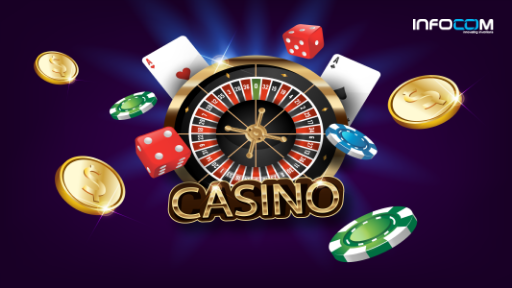Casinos have been a cornerstone of entertainment and social interaction for centuries, their history a tapestry woven with glamour, controversy, and innovation. From their origins in ancient civilizations to their modern-day manifestations, depo 5k have evolved into multifaceted institutions with far-reaching impacts on both local economies and global culture.
The Birth of Gambling
The roots of gambling can be traced back to ancient civilizations where rudimentary games of chance were a staple of social life. The earliest evidence of gambling comes from ancient China, where tiles from around 2300 BC suggest a rudimentary form of lottery. Similarly, ancient Rome had a rich gambling culture, with dice games and chariot races capturing the imagination of its citizens.
The term “casino” itself, however, did not emerge until much later. It derives from the Italian word “casa,” meaning house. The earliest casinos were modest establishments attached to villas or palaces, offering a range of games and entertainment for the elite.
The Rise of the Casino Industry
The modern casino industry began to take shape in 17th century Europe, particularly in Venice. The Casino di Venezia, established in 1638, is often considered the oldest casino still in operation. It was initially a private club for the wealthy, offering card games and other forms of entertainment. The Venetian model of the casino would influence many of the gaming houses that followed.
The 19th century saw the proliferation of casinos across Europe, with notable establishments like the Casino de Monte-Carlo in Monaco becoming symbols of luxury and sophistication. Monte-Carlo’s casino was instrumental in establishing the modern casino as a place of high stakes and opulent surroundings.
The American Casino Boom
The American casino industry began its transformation in the early 20th century. Las Vegas, initially a small desert town, emerged as the epicenter of casino entertainment in the 1940s and 1950s. With the legalization of gambling in Nevada in 1931, Las Vegas quickly became synonymous with casino culture. The city’s rise was marked by extravagant resorts, star-studded shows, and an air of excess.
The introduction of casino resorts marked a turning point, as these establishments began to offer not just gaming but also a wide range of amenities such as fine dining, shopping, and entertainment. This all-encompassing approach to leisure solidified Las Vegas’s status as the gambling capital of the world.
Global Influence and the Online Revolution
The digital age has brought a new dimension to the casino industry. Online casinos have democratized access to gambling, allowing players to enjoy their favorite games from the comfort of their homes. This shift has also expanded the industry’s reach, enabling casinos to tap into a global market.
Online casinos offer a range of games from classic table games like blackjack and roulette to innovative slots with interactive features. The advent of live dealer games has further enhanced the online gambling experience, bridging the gap between virtual and physical gaming environments.
Social and Economic Impacts
Casinos have profound social and economic impacts on the communities they inhabit. On one hand, they generate substantial revenue through gaming, tourism, and ancillary services. This revenue can contribute to local economies, funding public services and infrastructure. In Las Vegas, for example, the casino industry has driven significant economic growth and employment opportunities.
On the other hand, casinos can also bring challenges. Issues such as gambling addiction, crime, and social disruption are associated with the casino industry. Responsible gambling measures, community support programs, and regulatory frameworks are essential in mitigating these negative effects and ensuring that the benefits of casinos are balanced with social responsibility.
The Future of Casinos
The future of casinos is likely to be shaped by technological advancements and changing consumer preferences. Innovations such as virtual reality (VR) casinos and blockchain technology are set to transform the industry further. VR casinos promise immersive experiences that could revolutionize how players interact with casino games, while blockchain technology offers enhanced security and transparency in online gambling.
As casinos continue to evolve, they will likely maintain their role as a dynamic facet of modern entertainment, balancing tradition with innovation. The allure of chance, combined with the ever-expanding possibilities of technology, ensures that casinos will remain a vibrant and influential part of our cultural landscape.


